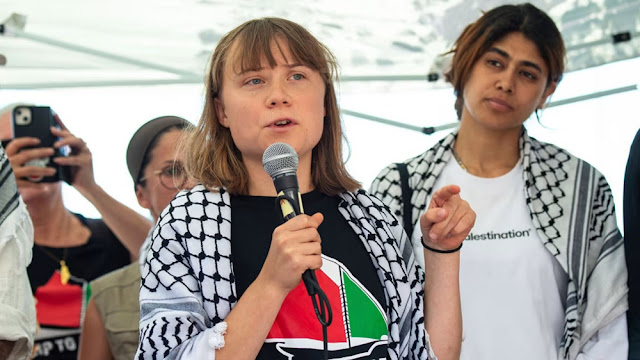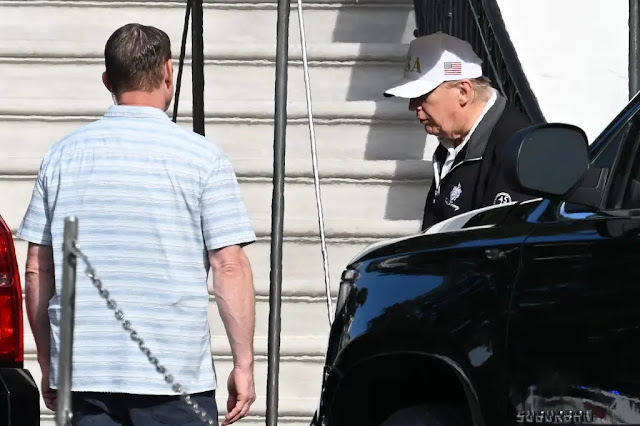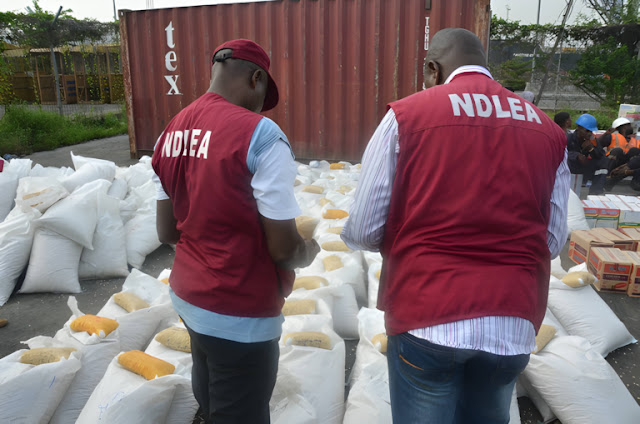In a highly controversial move, the Israeli regime is reportedly preparing to detain Swedish climate activist Greta Thunberg and other participants of the Global Sumud Flotilla under what has been described as “terrorist-level conditions.” The flotilla, described as the largest solidarity mission of its kind, set sail from Spain on Sunday, August 2025, with the aim of breaking Israel’s blockade of Gaza and addressing the escalating humanitarian crisis in the region, which activists and observers attribute to Israel’s ongoing military actions.
Greta Thunberg and other activists from a human rights organization meet with journalists in Catania, Italy, on June 1, 2025. (Photo by AP)
The flotilla, joined by prominent figures such as actor Liam Cunningham and former Barcelona mayor Ada Colau, is part of a broader global movement to deliver aid and challenge what participants call an illegal and genocidal siege. As the mission gains international attention, Israel’s response has sparked widespread condemnation, raising critical questions about human rights, international law, and the ethics of detaining activists under severe conditions.
The Global Sumud Flotilla: A Mission for Gaza
The Global Sumud Flotilla represents a bold and ambitious effort to deliver humanitarian aid to Gaza, a Palestinian territory that has been under a stringent Israeli blockade for years. The blockade, enforced by Israel with support from the United States, has restricted the flow of essential goods, including food, medicine, and fuel, into Gaza, leading to what the Integrated Food Security Phase Classification (IPC) has confirmed as a full-blown famine in the Gaza Governorate as of August 15, 2025. The crisis has reached catastrophic levels, with over half a million Palestinians currently facing starvation and projections indicating that this number could rise to 640,000 by October 2025. Gaza’s Health Ministry reported five deaths due to famine and malnutrition in the past 24 hours alone, including two children, bringing the total number of hunger-related deaths to 322, of which 121 are children.
The flotilla, organized by the Freedom Flotilla Coalition (FFC), comprises dozens of boats carrying hundreds of activists from 44 countries. The mission began with vessels departing from Barcelona, Spain, and is expected to be joined by additional ships from ports in Italy, Greece, Tunisia, and other Mediterranean locations in the coming days. Organizers estimate that the flotilla will include around 20 vessels once fully assembled, making it the largest such initiative to date. The mission’s objectives are clear: to deliver humanitarian aid, break Israel’s blockade, and establish a “people’s humanitarian corridor” to Gaza. The activists, led by figures like Thunberg, Cunningham, and Colau, view their efforts as a response to the failure of governments and international institutions to address the humanitarian crisis in Gaza.
Before departing from Barcelona, Thunberg spoke to Press TV about the flotilla’s mission. “This project is part of a global uprising of people standing up,” she said. “Over 26,000 people have signed up to participate in this mission. When our governments fail to act, the people will rise, and we cannot stand idly by in the face of the atrocities and complicity in the genocide occurring in Gaza.” Her remarks reflect the urgency and moral conviction driving the flotilla, as well as the growing frustration among activists with the international community’s inaction in the face of Gaza’s worsening conditions.
The departure from Barcelona was marked by a powerful display of solidarity. Boats adorned with Palestinian flags lined up at a pier, while hundreds of supporters, many wearing keffiyehs, gathered to chant “Free Palestine!” and “Boycott Israel!” The scene underscored the global resonance of the Palestinian cause and the determination of activists to challenge Israel’s policies through direct action.
Israel’s Response: Harsh Detentions and Maritime Seizures
The Israeli regime, led by Prime Minister Benjamin Netanyahu, has responded to the flotilla with plans for aggressive measures. According to the Israeli newspaper Israel Hayom, the government intends to detain activists, including Thunberg, in the Ktzi’ot and Damon detention centers, facilities known for their harsh conditions and typically reserved for individuals classified as security threats. The proposal, reportedly spearheaded by Israeli Minister of National Security Itamar Ben-Gvir, includes seizing the flotilla’s vessels to establish a “maritime force for police operations.” Sources close to Ben-Gvir indicated that the detentions are intended to serve as a deterrent, with one source stating, “After spending several weeks in detention, the activists would come to regret their decision to join the flotilla. We must eliminate their appetite for another attempt.”
Israel’s foreign ministry has justified its stance, describing the flotilla as an “unauthorized attempt to breach the blockade” that is “dangerous, unlawful, and undermines ongoing humanitarian efforts.” The ministry’s statement reflects Israel’s long-standing position that its blockade of Gaza is necessary for security reasons, a claim that has been widely contested by human rights organizations and international observers. Critics argue that the blockade, which restricts access to Gaza’s waters and limits the entry of essential goods, is a form of collective punishment that violates international humanitarian law.
The planned detentions and vessel seizures have drawn sharp criticism from activists and human rights advocates, who view them as an attempt to suppress dissent and intimidate those seeking to provide humanitarian aid. The prospect of detaining Thunberg, a globally recognized figure, under “terrorist-level conditions” has further amplified concerns about Israel’s treatment of activists and its disregard for international norms. Thunberg herself has acknowledged the risks involved, drawing from her experience in June 2025 when she participated in the Madleen flotilla. That mission was intercepted by the Israeli navy 115 miles west of Gaza, and the activists, including Thunberg, were detained and later deported to Paris. Thunberg described the incident as a “kidnapping in international waters,” highlighting the contentious nature of Israel’s actions in international maritime zones.
The Humanitarian Crisis in Gaza
The Global Sumud Flotilla’s mission is set against the backdrop of a dire humanitarian crisis in Gaza, exacerbated by Israel’s military offensive and blockade. The IPC’s confirmation of famine conditions in the Gaza Governorate underscores the severity of the situation, with over half a million people facing acute food insecurity. The blockade has severely restricted the delivery of food, medical supplies, and other essentials, leading to widespread malnutrition and hunger-related deaths. The Gaza Health Ministry’s reports of 322 deaths, including 121 children, due to famine and malnutrition highlight the human toll of Israel’s policies.
Israel’s intensified offensive on Gaza City, coupled with its blockade of Gaza’s waters, has been accused of deliberately creating famine conditions as part of its military strategy. Human rights organizations have documented how the blockade has prevented humanitarian aid from reaching those in need, exacerbating the crisis. The United Nations and other international bodies have repeatedly called for the lifting of the blockade and the unimpeded delivery of aid, but these calls have largely gone unheeded.
The flotilla’s organizers argue that their mission is a direct response to this crisis. By delivering aid and challenging the blockade, they aim to draw global attention to the plight of Palestinians in Gaza and pressure Israel to end its restrictions. The participation of high-profile figures like Thunberg, Cunningham, and Colau has helped amplify the mission’s message, bringing renewed focus to the humanitarian and political dimensions of the Gaza crisis.
Legal and Ethical Implications
The Israeli regime’s plans to detain activists under harsh conditions raise significant legal and ethical questions. Under international law, states have the right to enforce maritime security within their territorial waters, but the interception of vessels in international waters, as occurred during the Madleen flotilla incident, is highly contentious. The detention of activists, particularly under conditions typically reserved for individuals deemed security threats, could be seen as a violation of their rights to freedom of expression and movement.
Moreover, the labeling of humanitarian activists as threats akin to terrorists has drawn condemnation from human rights organizations. The use of detention centers like Ktzi’ot and Damon, which have been criticized for their harsh conditions, further fuels accusations of disproportionate and punitive measures. Critics argue that Israel’s response is not only an attempt to suppress the flotilla’s mission but also a broader effort to criminalize solidarity with the Palestinian cause.
The flotilla’s organizers, for their part, maintain that their actions are lawful and grounded in international humanitarian principles. They argue that the blockade itself is illegal under international law, as it imposes collective punishment on Gaza’s civilian population. By attempting to deliver aid and break the siege, the activists are asserting their right to challenge what they see as an unjust and inhumane policy.
A Global Uprising for Palestine
The Global Sumud Flotilla is more than a humanitarian mission; it is a symbol of global resistance to Israel’s policies in Gaza. The participation of activists from 44 countries underscores the widespread international support for the Palestinian cause and the growing frustration with the inaction of governments and international institutions. The flotilla’s organizers have framed their efforts as part of a “global uprising,” reflecting a broader movement to hold Israel accountable for its actions and to advocate for the rights of Palestinians.
Thunberg’s involvement has been particularly significant, given her global platform and history of activism. Her participation in the Madleen flotilla earlier in 2025, despite the risks and her subsequent detention, demonstrates her commitment to the cause. By joining the Global Sumud Flotilla, she has once again put her name and reputation on the line to highlight the crisis in Gaza and challenge Israel’s blockade.
The presence of figures like Liam Cunningham and Ada Colau further elevates the mission’s profile. Cunningham, known for his roles in films and television, has used his platform to advocate for humanitarian causes, while Colau, a prominent political figure in Spain, brings a level of institutional credibility to the flotilla. Their involvement underscores the mission’s broad appeal and its ability to unite diverse voices in support of Gaza.
The Road Ahead
As the Global Sumud Flotilla makes its way toward Gaza, the international community is watching closely. The Israeli regime’s plans to intercept the flotilla and detain its participants have set the stage for a high-stakes confrontation. The outcome of this mission could have far-reaching implications for the Palestinian cause, the global solidarity movement, and the broader discourse on humanitarian intervention.
For the activists, the risks are clear. Thunberg and her fellow participants are prepared for the possibility of interception, detention, and deportation, as evidenced by their previous experiences. Yet, their determination to deliver aid and challenge the blockade remains unwavering. The flotilla’s organizers have called on the international community to support their efforts and to pressure Israel to allow the delivery of humanitarian aid.
For Israel, the flotilla represents a challenge to its authority and a public relations dilemma. The detention of high-profile activists like Thunberg under harsh conditions could further damage Israel’s international standing and fuel accusations of human rights abuses. At the same time, allowing the flotilla to reach Gaza could be seen as a concession that undermines the blockade’s effectiveness.
Conclusion
The Global Sumud Flotilla’s mission to break Israel’s blockade of Gaza and deliver humanitarian aid has thrust the Palestinian crisis back into the global spotlight. The participation of Greta Thunberg, Liam Cunningham, Ada Colau, and hundreds of activists from 44 countries underscores the urgency of addressing the famine and humanitarian disaster in Gaza. Israel’s plans to detain the activists under “terrorist-level conditions” and seize their vessels have sparked outrage, raising critical questions about the ethics and legality of its actions.
As the flotilla sails toward Gaza, it carries not only aid but also a powerful message of solidarity and resistance. The mission’s outcome will likely shape the international discourse on Palestine, human rights, and the role of grassroots activism in challenging state policies. For now, the world waits to see whether the flotilla will succeed in its mission or face the same fate as its predecessors, intercepted and detained in the name of security. What is certain is that the Global Sumud Flotilla has already succeeded in drawing global attention to the plight of Gaza’s people and the need for urgent action to end the crisis.








